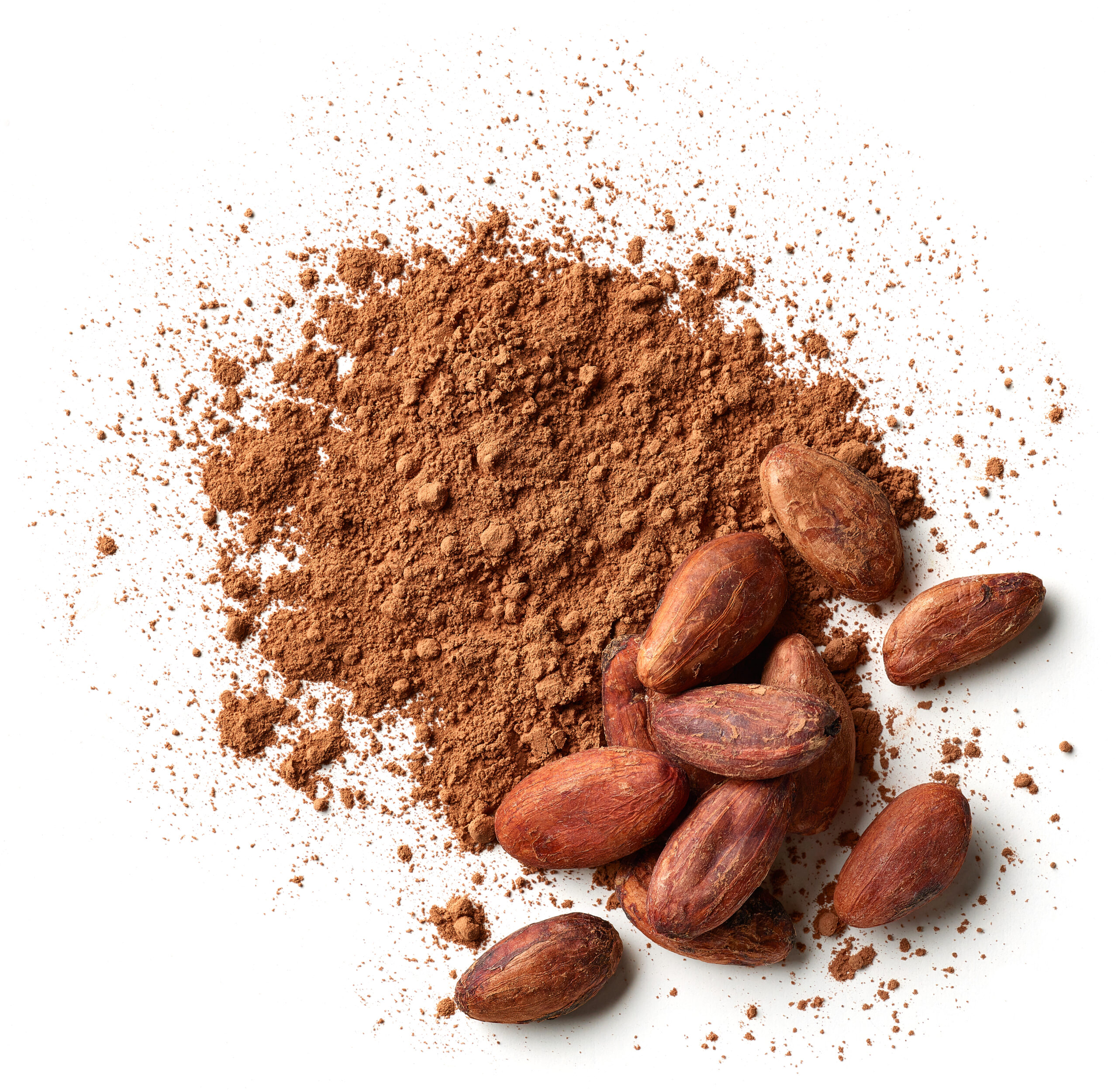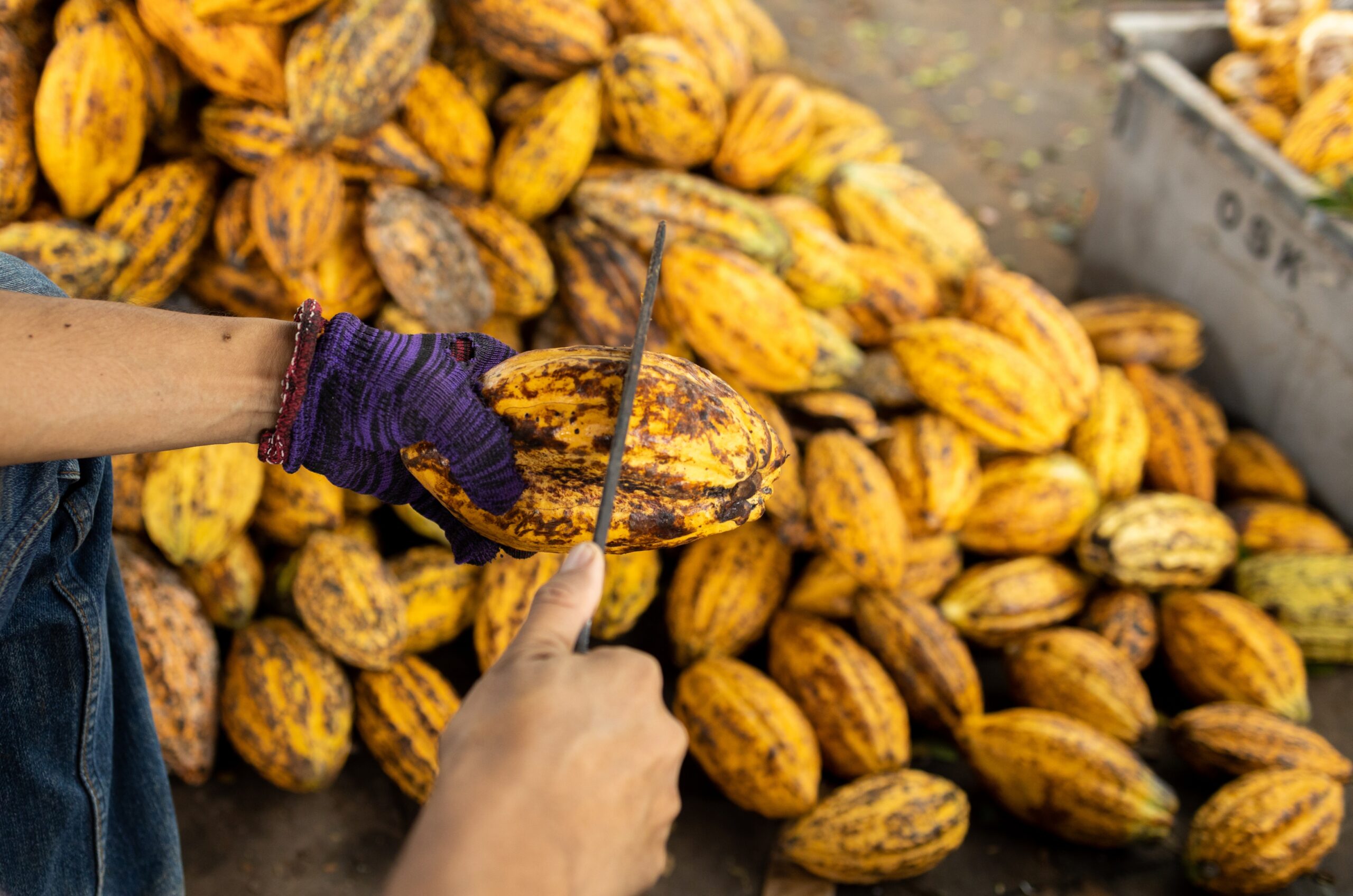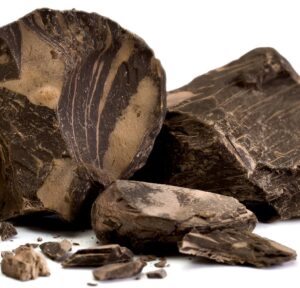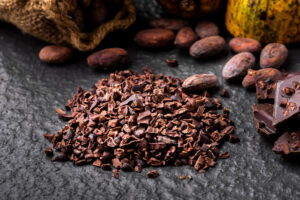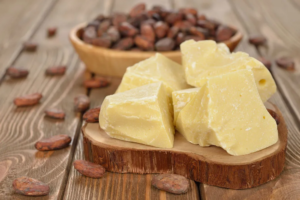Cocoa powder is one of the most essential ingredients in the world of baking, confectionery, and beverages. From classic chocolate cakes to creamy hot chocolate, cocoa adds the rich aroma and deep flavor that everyone loves. But did you know that not all cocoa powders are the same?
There are two main types of cocoa powder: Natural Cocoa Powder and Alkalized (Dutch-Processed) Cocoa Powder. Each has unique properties, flavor notes, and uses in food manufacturing and baking. Whether you’re a home baker, café owner, or wholesale buyer looking for cocoa powder in Dubai, understanding these two varieties can help you choose the right one for your needs.
What Is Cocoa Powder?
Cocoa powder is made from fermented, roasted, and ground cocoa beans, the seeds of the Theobroma cacao tree. These beans are processed to remove cocoa butter, leaving behind a dry, chocolate-flavored solid that is then ground into a fine powder.
This powder is rich in flavonoids, antioxidants, and minerals such as magnesium and iron, making it not only flavorful but also nutritionally beneficial. Cocoa powder is the base for most chocolate-flavored foods, from ice cream and biscuits to sauces, beverages, and desserts.
The two main categories: natural and alkalized, differ in acidity, color, taste, and application, which we’ll explore next.
Natural Cocoa Powder (10-12%): Pure and Intense
Natural cocoa powder is the purest form of cocoa, made without any chemical treatment. It has a light to medium brown color and a slightly acidic flavor, often described as tangy or fruity. Because it is not neutralized, it retains its natural pH of around 5 to 6.
Flavor Profile
Natural cocoa has a sharp, intense chocolate taste that pairs well with recipes using baking soda, as the alkalinity of baking soda helps neutralize the cocoa’s acidity. This reaction creates a balanced flavor and helps cakes and pastries rise properly.
Uses of Natural Cocoa Powder
-
Chocolate cakes and brownies
-
Hot chocolate and beverages
-
Ice cream and dairy products
-
Cocoa-based health drinks
Natural cocoa powder is often chosen by bakers and food manufacturers who want to maintain a pure, earthy chocolate flavor with a strong aroma and natural acidity.
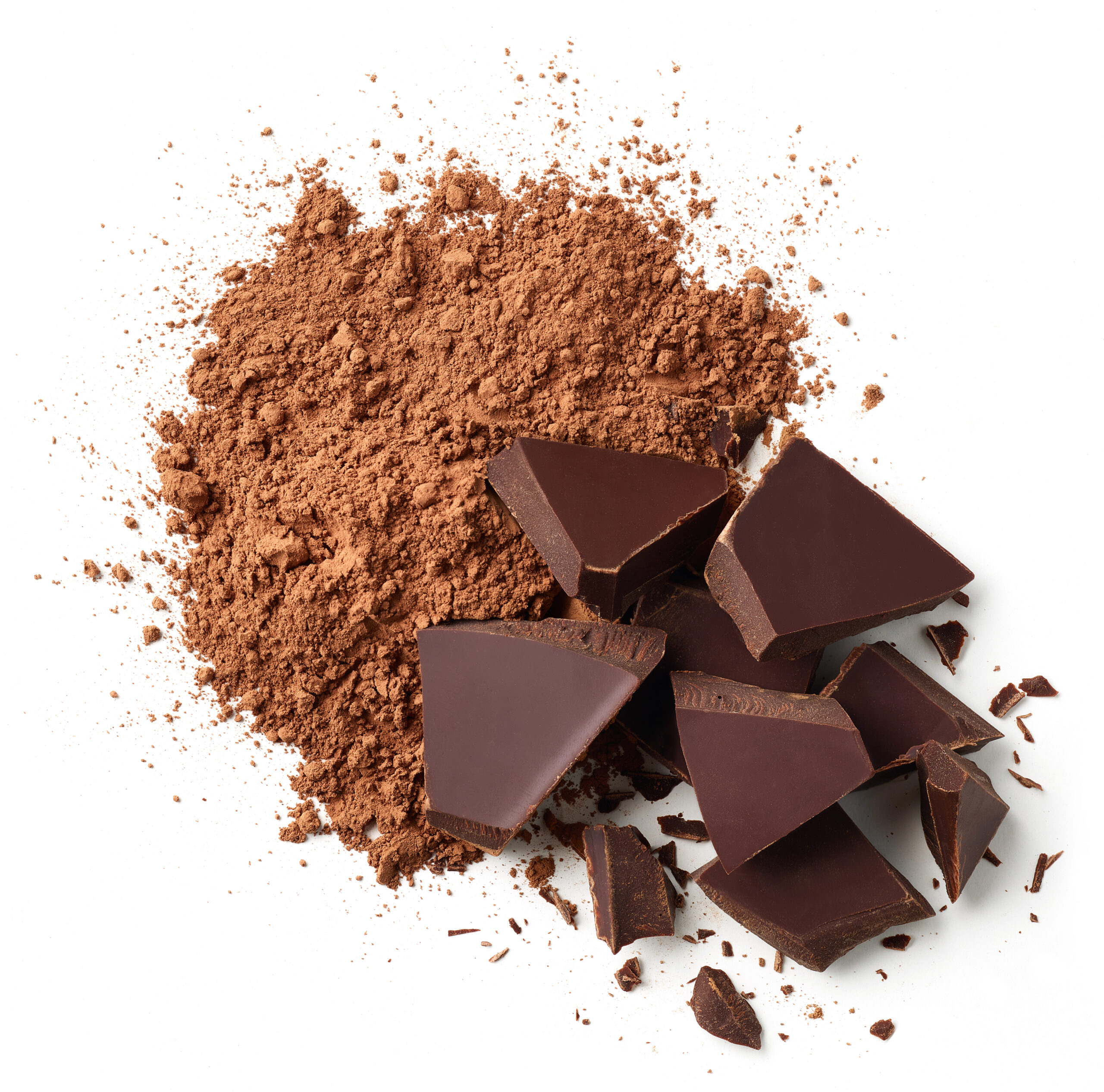
Popular Varieties
-
African Cocoa Powder: Known for its deep flavor and high fat content, African-origin cocoa (from Ghana, Ivory Coast, and Nigeria) is widely used by chocolatiers worldwide.
-
Fine Cocoa Powder: This refers to high-grade natural cocoa that’s finely milled for smooth texture and enhanced flavor in desserts or beverages.
Natural cocoa is also rich in antioxidants and contains more flavanols than processed versions, making it a great option for those who prioritize nutrition along with flavor.
Alkalized (Dutch-Processed) Cocoa Powder: Smooth and Balanced
Alkalized cocoa powder, also known as Dutch-processed cocoa, is treated with an alkaline solution (usually potassium carbonate) to neutralize its natural acidity. This process gives the powder a darker color, milder flavor, and smoother texture.
Originally developed in the Netherlands, the Dutching process enhances solubility, which makes alkalized cocoa powder particularly suitable for beverages and recipes where uniform color and texture are important.
Flavor Profile
Alkalized cocoa is less bitter and more mellow than natural cocoa. It has a deep, rich chocolate flavor and a smoother mouthfeel. The color can range from medium brown to almost black, depending on the level of alkalization.
Uses of Alkalized Cocoa Powder
-
Hot cocoa mixes and chocolate drinks
-
Chocolate biscuits and cookies
-
Ice creams and milkshakes
-
Premium confectionery and dessert sauces
Because alkalized cocoa is neutral in pH, it’s often used with baking powder instead of baking soda. This ensures consistent texture without affecting the leavening process.
Why Many Prefer Alkalized Cocoa
In commercial food production, alkalized cocoa is often the preferred choice because of its consistent flavor, darker color, and better dispersibility in liquids. Its appearance also gives baked goods a rich, luxurious look, which enhances presentation.
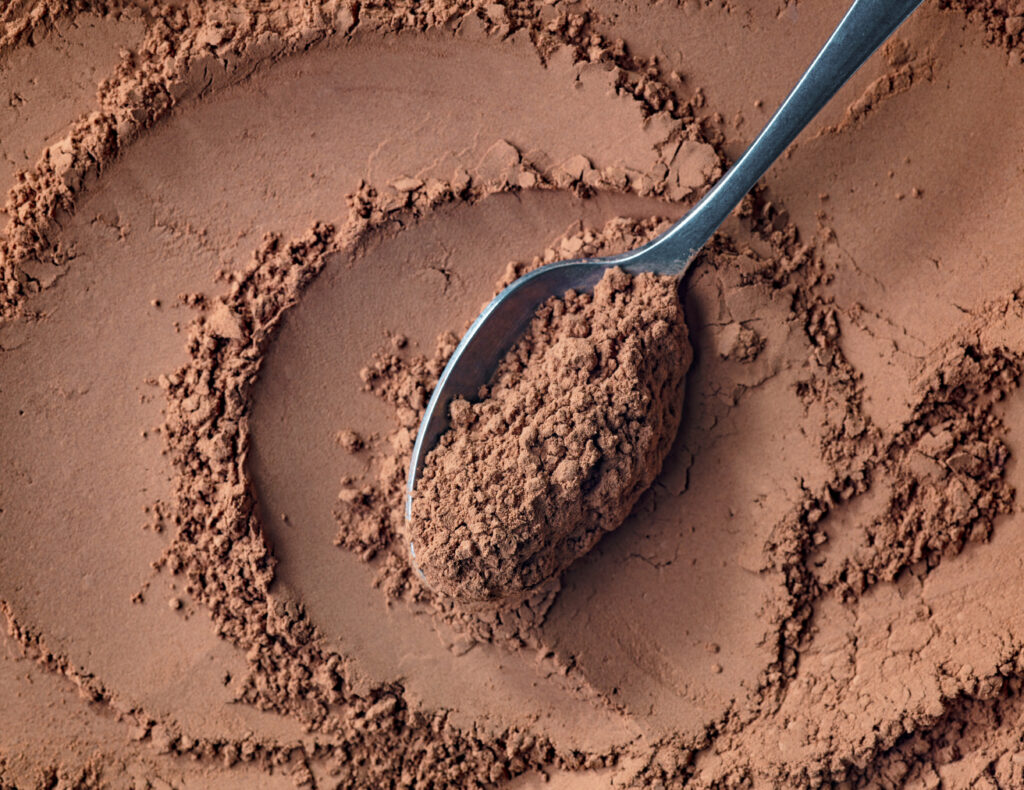
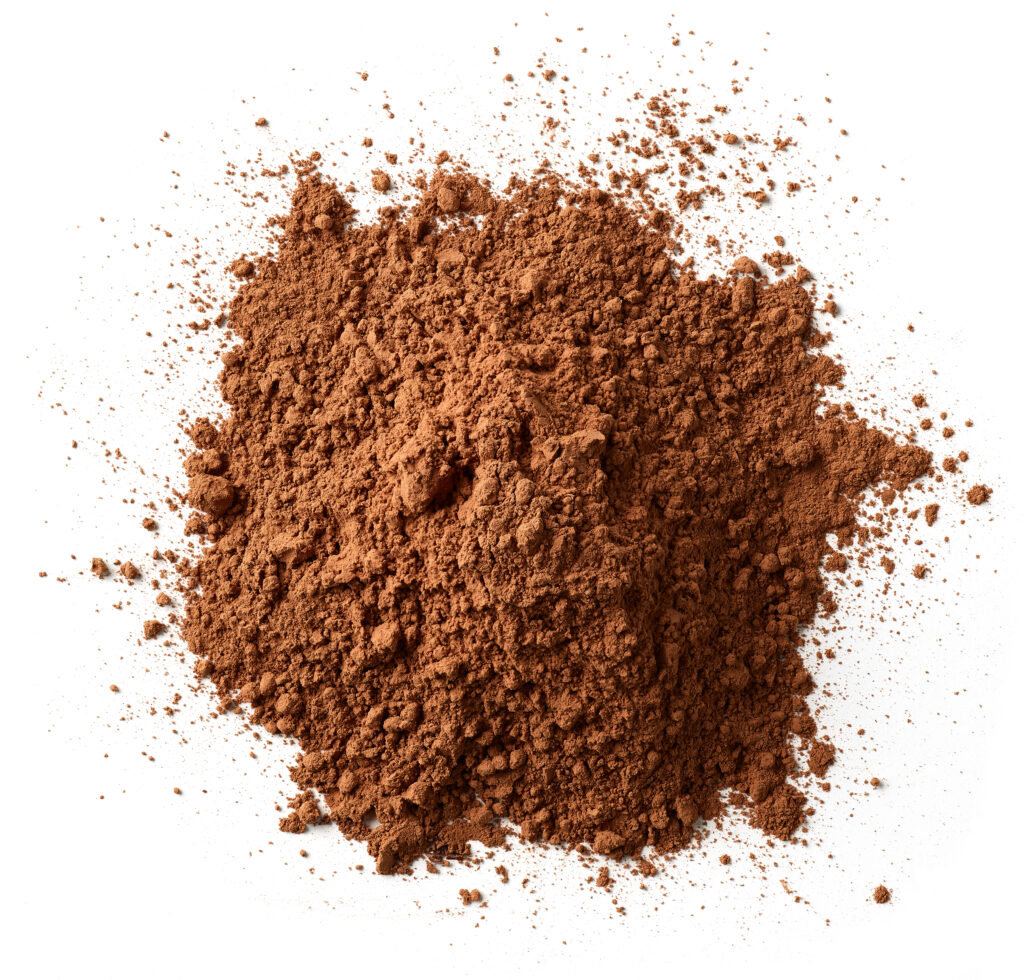
Comparing Natural vs. Alkalized Cocoa Powder
| Feature | Natural Cocoa Powder | Alkalized (Dutch) Cocoa Powder |
| Color | Light to medium brown | Dark brown to almost black |
| pH Level | Acidic (5–6) | Neutral or slightly basic (7-8.2) |
| Flavor | Sharp, fruity, tangy | Smooth, mild, deep chocolate |
| Use With | Baking soda | Baking powder |
| Solubility | Moderate | Excellent |
| Common Use | Homemade desserts, health products | Beverages, cookies, premium chocolates |
Both types are versatile. It simply depends on your recipe and taste preference. If you want a natural, bold cocoa flavor, go for natural cocoa powder. For smoother, darker, and less acidic results, choose alkalized cocoa powder.
Cocoa Powder Prices and Packaging
For buyers, prices often vary depending on origin, fat content, and processing. Here’s an overview of standard cocoa powder prices based on current market averages:
| Packaging Size | Average Price (USD) | Notes |
| 1 kg Cocoa Powder | USD 15 | Retail pack, ideal for bakeries and cafés |
| 5 kg Cocoa Powder | USD 75 | Bulk pack for small-scale manufacturers |
| 1 Metric Ton (FOB) | USD 6,800 | Wholesale price for export and large-scale buyers |
Prices can fluctuate depending on quality, fat percentage (typically 10–12% or 20–22%), and whether it’s natural or alkalized. African cocoa powder, for instance, is highly sought after in the Middle East due to its premium flavor and consistency.
If you are sourcing cocoa powder in Dubai, you’ll find a wide range of options, from retail shops offering fine cocoa powder for daily use to cocoa powder wholesale suppliers like Radad International, catering to bakeries, beverage manufacturers, and chocolatiers.
Cocoa Powder in Dubai
Dubai has quickly become a major hub for cocoa powder trade and distribution in the Middle East. Its strategic location makes it a key re-export point for cocoa products from West Africa and Asia.
Local distributors offer both natural and alkalized cocoa powder in a range of fat contents and grades to suit different industries, from artisanal bakeries to multinational food producers.
Where to Buy Cocoa Powder in Dubai
-
Wholesale Suppliers (Radad International): These typically import directly from Africa (Ghana, Ivory Coast, Cameroon, Nigeria) and sell in bulk quantities (25kg bags or more).
-
Retail and Specialty Stores: For smaller buyers or home use, fine cocoa powders are available in 1kg to 5kg packages.
-
Online Marketplaces: Many buyers prefer ordering online from trusted suppliers in Dubai for faster delivery and competitive prices.
The demand for cocoa powder in Dubai has grown steadily due to the rise in local chocolate manufacturing, cafés, dessert shops, and food production businesses.
African Cocoa Powder
Africa is the world’s largest producer of cocoa beans, and its powders are globally recognized for quality and taste. Countries like Ghana, Ivory Coast, Cameroon, and Nigeria dominate the export market, providing over 60% of global cocoa supplies.
African cocoa powder is particularly favored for its strong aroma, rich flavor, and balanced fat content, ideal for both natural and alkalized variants. It is often used in premium chocolates, baking mixes, and instant beverages.
Exporters in these countries maintain strict quality standards, ensuring that the cocoa retains its natural color, texture, and nutritional value. For buyers in Dubai and across the GCC, sourcing African cocoa guarantees consistent results and authenticity.
Cocoa Powder for Wholesale and Retail Buyers
Whether you are a large-scale manufacturer or a small business, choosing the right source of cocoa powder can make a huge difference in your product quality and cost.
Wholesale Cocoa Powder
Bulk buyers, such as confectionery factories and bakeries, usually prefer 25kg, 50kg, or 1-ton shipments of cocoa powder. Wholesale buyers focus on fat content, moisture level, and color consistency. Alkalized powders are often chosen for industrial-scale chocolate drinks or biscuit production, while natural powders are preferred for health and organic products. You can buy both natural and alkalized cocoa powder from Radad International. We focus on both retail and bulk quantities, offering the best quality of African cocoa powder
Retail Cocoa Powder
Retail buyers, including cafés, dessert shops, and home bakers, typically look for smaller packs (1kg or 5kg). Fine-grind cocoa with consistent texture and flavor is ideal for daily baking or beverage applications.
Regardless of scale, ensuring that the cocoa powder is fresh, well-stored, and from a reputable source is crucial to maintaining product quality.
How to Choose Between Natural and Alkalized Cocoa Powder
If you’re unsure which type to use, consider these quick guidelines:
-
For Baking: Use natural cocoa powder if your recipe contains baking soda. It helps balance acidity and gives a rich, slightly tangy chocolate flavor.
-
For Beverages: Alkalized cocoa powder dissolves better in liquids and provides a smoother, darker result, perfect for hot chocolate and instant drink mixes.
-
For Health-Conscious Products: Choose natural cocoa powder, as it retains more antioxidants and minerals.
-
For Professional Dessert Makers: Alkalized cocoa powder offers color uniformity and smoothness that enhances presentation and taste in high-end confectionery.
Conclusion
Cocoa powder, whether natural or alkalized, is a cornerstone ingredient in the global food industry. Each type serves a distinct purpose. Natural cocoa brings intensity and authenticity, while alkalized cocoa adds balance and richness.
With growing demand across the Middle East, particularly for cocoa powder in Dubai, both wholesale and retail markets continue to thrive. From African cocoa powder with bold flavors to fine cocoa powder used in gourmet desserts, there’s a perfect variant for every application and every business.
Whether you’re buying 1kg cocoa powder for your café, a 5kg pack for your bakery, or 1 ton of cocoa powder (USD 6,800 FOB) for export, understanding the difference between natural and alkalized cocoa ensures that every product you create tastes as good as it looks.
FAQs About Cocoa Powder
What is the difference between natural and alkalized cocoa powder?
The key difference lies in processing and flavor.
Natural cocoa powder is untreated, meaning it retains its natural acidity and a bright, sharp chocolate flavor. Alkalized (Dutch-processed) cocoa powder is treated with an alkaline solution to neutralize acidity, resulting in a darker color and a smoother, milder taste.
Natural cocoa is best used in recipes that contain baking soda (like brownies or sponge cakes), while alkalized cocoa works better with baking powder or in beverages, giving a richer color and smoother texture.
Is natural cocoa powder healthier than alkalized cocoa powder?
Yes, generally, natural cocoa powder contains higher levels of antioxidants and flavonoids because it undergoes less processing. These compounds support heart health and may help reduce inflammation.
However, both natural and alkalized cocoa are rich in essential minerals like magnesium, iron, and potassium. If you’re using cocoa mainly for baking or beverages, the health difference is minor, the choice depends more on flavor and application.
Can I substitute natural cocoa powder for alkalized cocoa powder in recipes?
You can, but it’s not always a direct one-to-one substitution.
Because natural cocoa is acidic and alkalized cocoa is neutral, swapping one for the other may change the texture and flavor of your baked goods.
If a recipe uses baking soda, it’s likely formulated for natural cocoa powder. If it calls for baking powder, alkalized cocoa will give the best results.
For best outcomes, match the cocoa type to what the recipe specifies.
What is fine cocoa powder, and how is it different from regular cocoa?
Fine cocoa powder refers to high-quality cocoa that is finely milled to achieve a smoother texture and better flavor release. It dissolves easily in liquids and blends seamlessly in batters, making it ideal for professional baking, premium chocolates, and beverages.
Fine cocoa powder can be either natural or alkalized, depending on the manufacturer. It’s commonly used by chefs and cafés who want a more refined texture and stronger chocolate aroma.
What is African cocoa powder known for?
African cocoa powder, especially from Ghana, Ivory Coast, and Nigeria, is famous for its deep aroma, bold chocolate flavor, and consistent fat content. These qualities make it one of the most sought-after varieties in the global market.
African cocoa is often used as the base for both natural and alkalized cocoa powders. Because of its rich flavor profile, it’s a preferred choice among manufacturers and cocoa powder sellers in Dubai and other major trade hubs.
How much does cocoa powder cost?
Cocoa powder prices vary based on type, quality, and origin. Here’s a quick breakdown of current market averages:
| Packaging Size | Average Price (USD) |
| 1 kg Cocoa Powder | USD 15 |
| 5 kg Cocoa Powder | USD 75 |
| 1 Metric Ton (FOB) | USD 6,800 (CFR) |
Natural cocoa and alkalized cocoa are priced similarly, though alkalized variants can be slightly more expensive due to additional processing. African cocoa powder often commands a premium due to its quality and flavor strength.
Where can I buy cocoa powder in Dubai?
There are multiple ways to buy cocoa powder in Dubai, depending on your needs:
-
Wholesale Suppliers (Radad International): Ideal for bakeries, beverage manufacturers, and chocolate producers.
-
Retail Stores: Supermarkets and specialty shops offer smaller packs of fine cocoa powder for home or café use.
-
Online Platforms: Many buyers prefer ordering from verified suppliers in Dubai who provide both natural and alkalized cocoa powder in various grades.
Dubai’s strategic trade position also means you can easily find African cocoa powder, imported fresh from Ghana, Ivory Coast, and Nigeria.
What type of cocoa powder is best for making hot chocolate?
For beverages, alkalized cocoa powder is generally preferred. It dissolves more easily in hot liquids and produces a smooth, creamy drink with a deep chocolate color.
If you prefer a stronger, slightly tangy flavor, you can use natural cocoa powder, but make sure to whisk it thoroughly, as it doesn’t mix as easily as alkalized cocoa.
Can I use cocoa powder for skincare or cosmetic purposes?
Yes. Natural cocoa powder, in particular, is rich in antioxidants that nourish the skin and help reduce signs of aging. It’s often used in DIY face masks, scrubs, and beauty products because of its ability to hydrate and protect the skin
However, make sure to use food-grade or pure cocoa powder with no added sugar or flavoring. Many suppliers in Dubai also provide cosmetic-grade cocoa for spa and skincare use.
What is the shelf life of cocoa powder, and how should I store it?
Cocoa powder generally has a shelf life of 18 to 24 months when stored correctly. Keep it in an airtight container, away from moisture, heat, and direct sunlight.
Natural and alkalized cocoa both stay fresh longer if stored in cool, dry places. Never refrigerate cocoa powder — moisture can cause clumping and flavor loss.
For wholesale buyers, bulk cocoa (25 kg or 1-ton shipments) should be stored in climate-controlled warehouses to maintain quality.
Which is better for professional use, natural or alkalized cocoa powder?
It depends on your product line:
-
Bakers and confectioners often prefer alkalized cocoa powder for its uniform color, balanced flavor, and better mixing ability.
-
Health food producers or brands focusing on organic products often use natural cocoa powder, highlighting its antioxidant and nutrient profile.
Many businesses in Dubai use both — natural cocoa for health-focused items and alkalized cocoa for premium desserts and beverages.
Can I find both natural and alkalized cocoa powder in wholesale quantities?
Yes. Most cocoa powder wholesale suppliers like Radad International in Dubai and the wider UAE offer both varieties in bulk packaging (typically 25 kg bags or 1-ton lots).
Buyers can choose from different origins, African, Indonesian, or South American, and customize it based on fat content (10–12% or 20–22%) and color intensity. The best suppliers provide lab-tested fine cocoa powder with full specifications and certificates of analysis.

